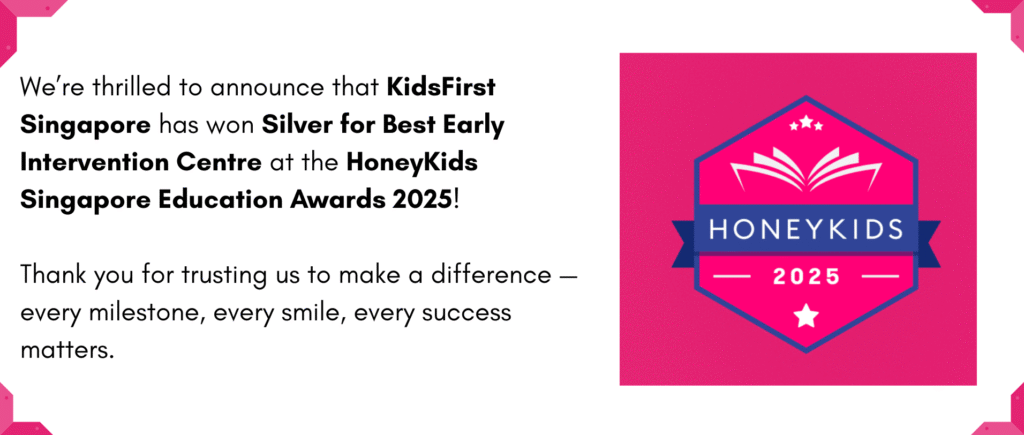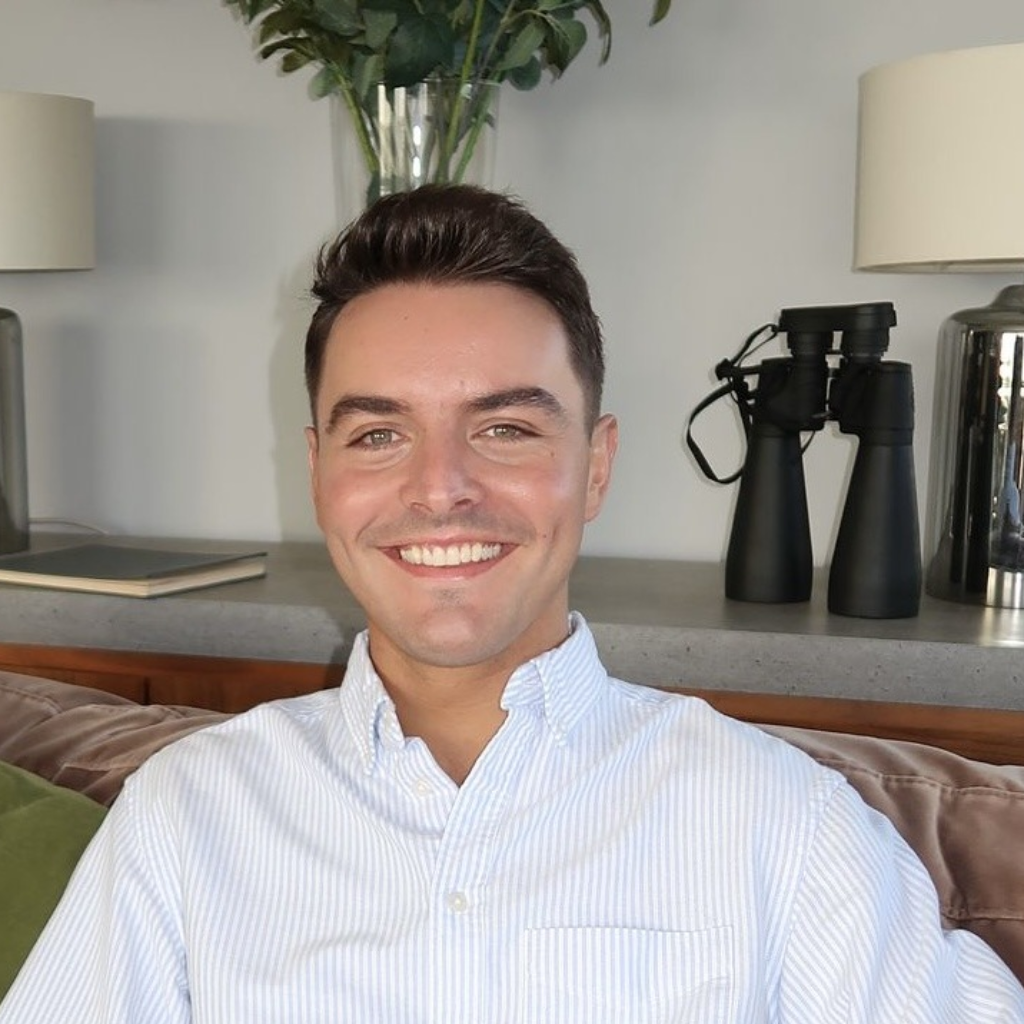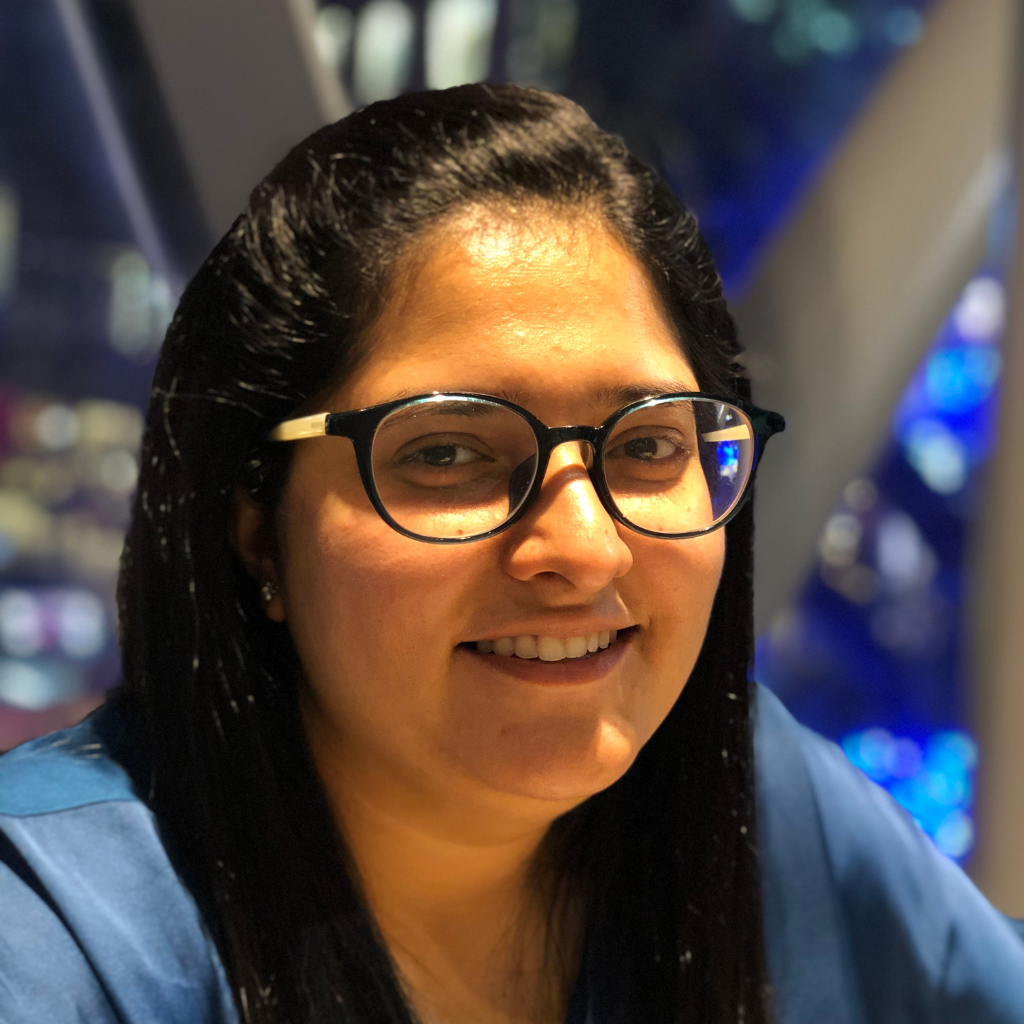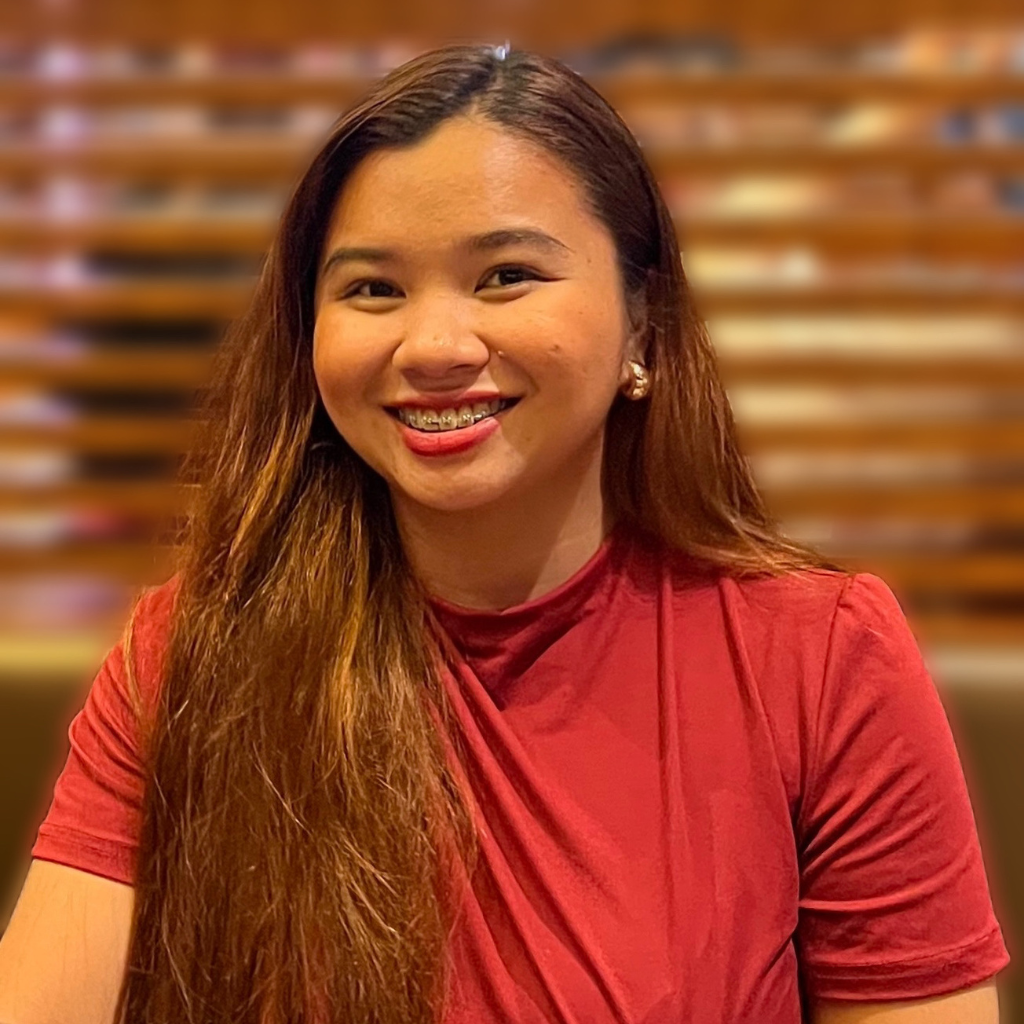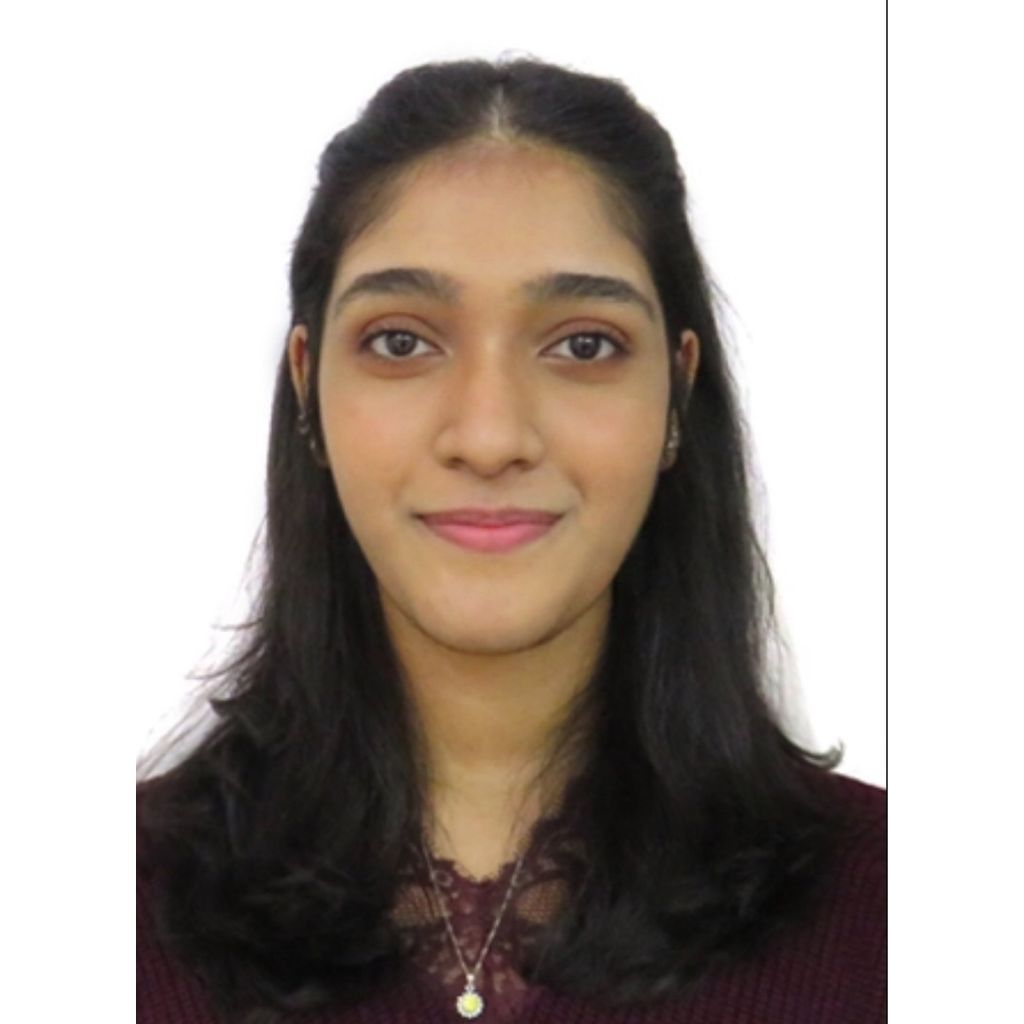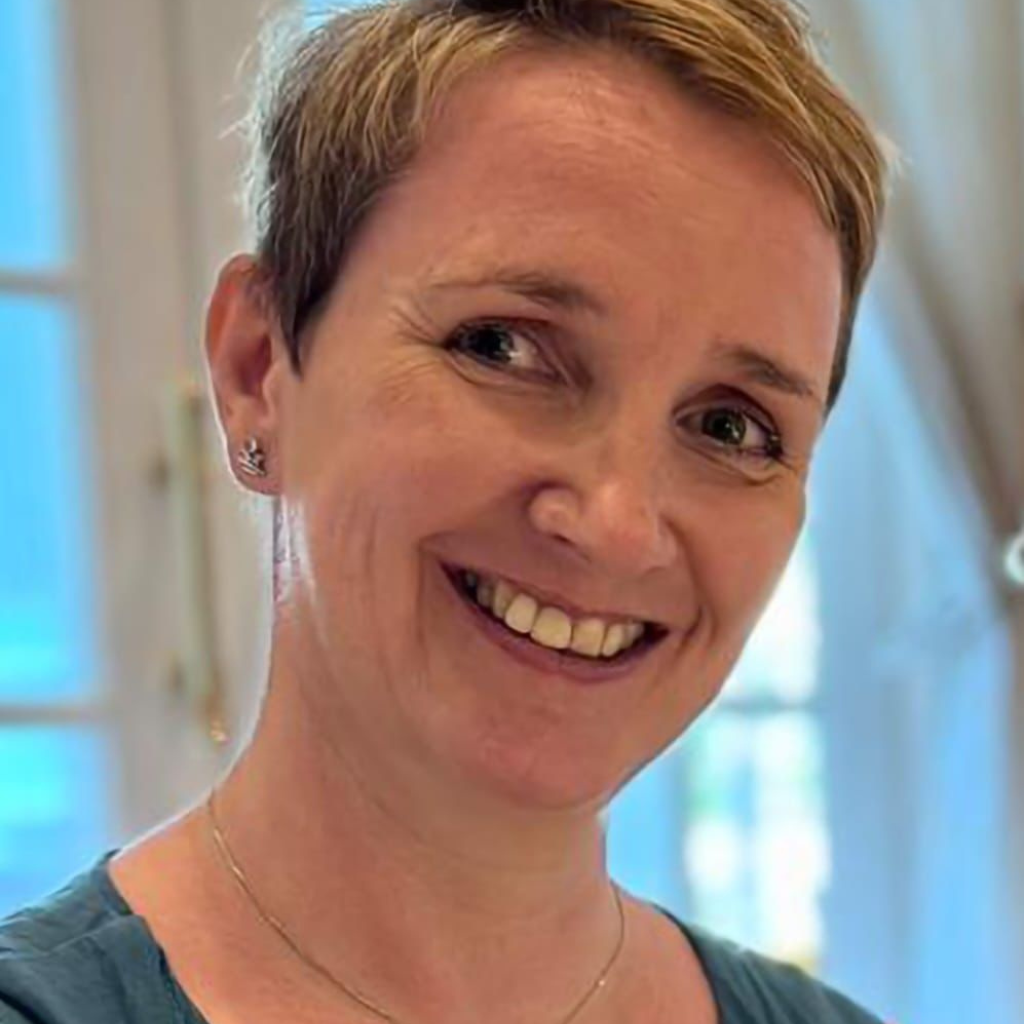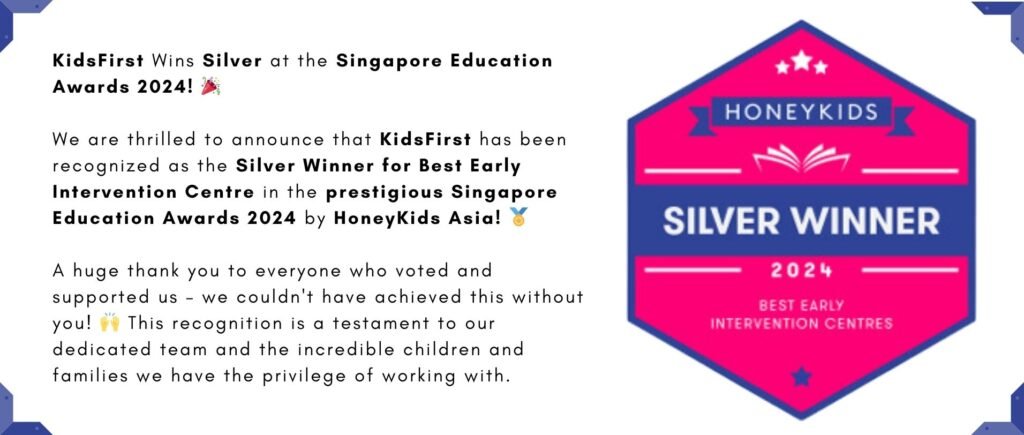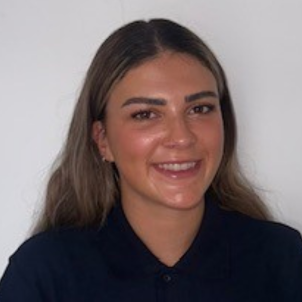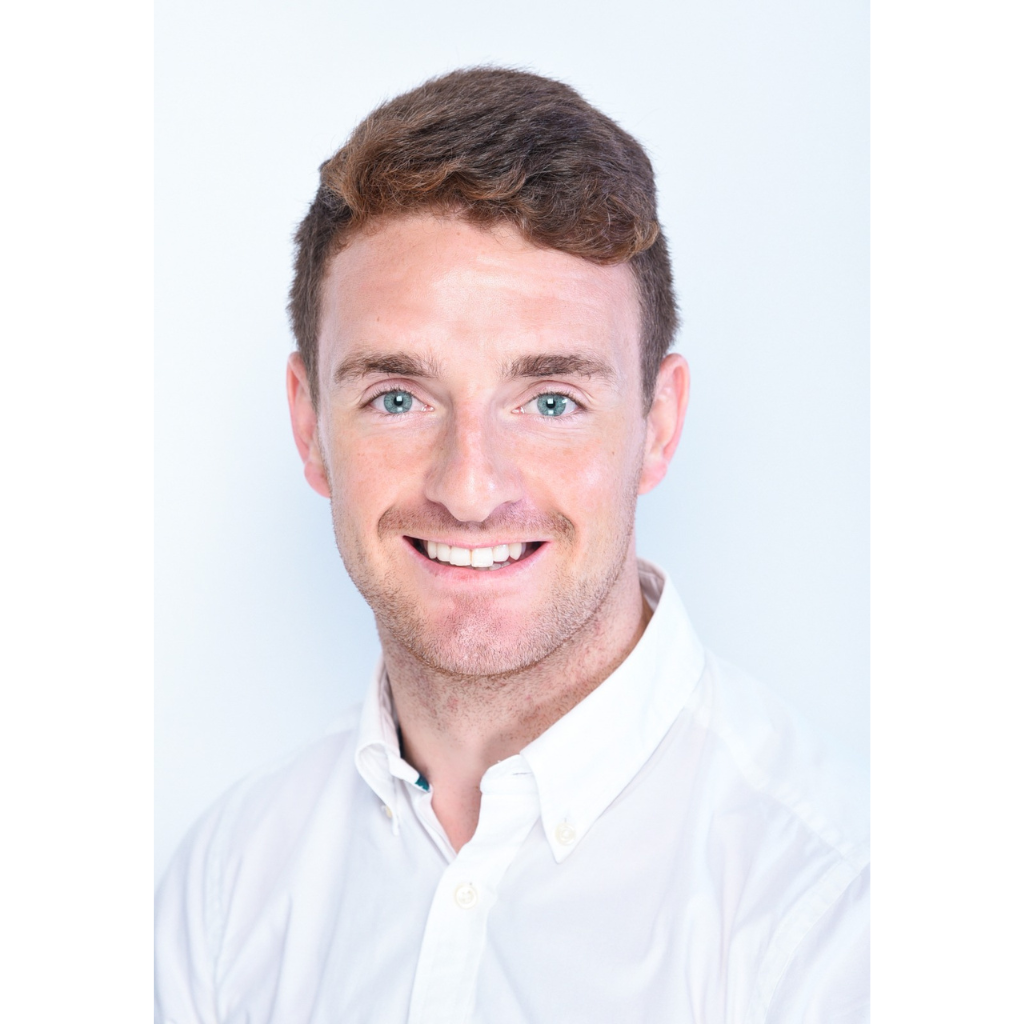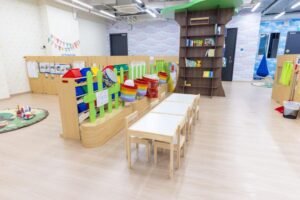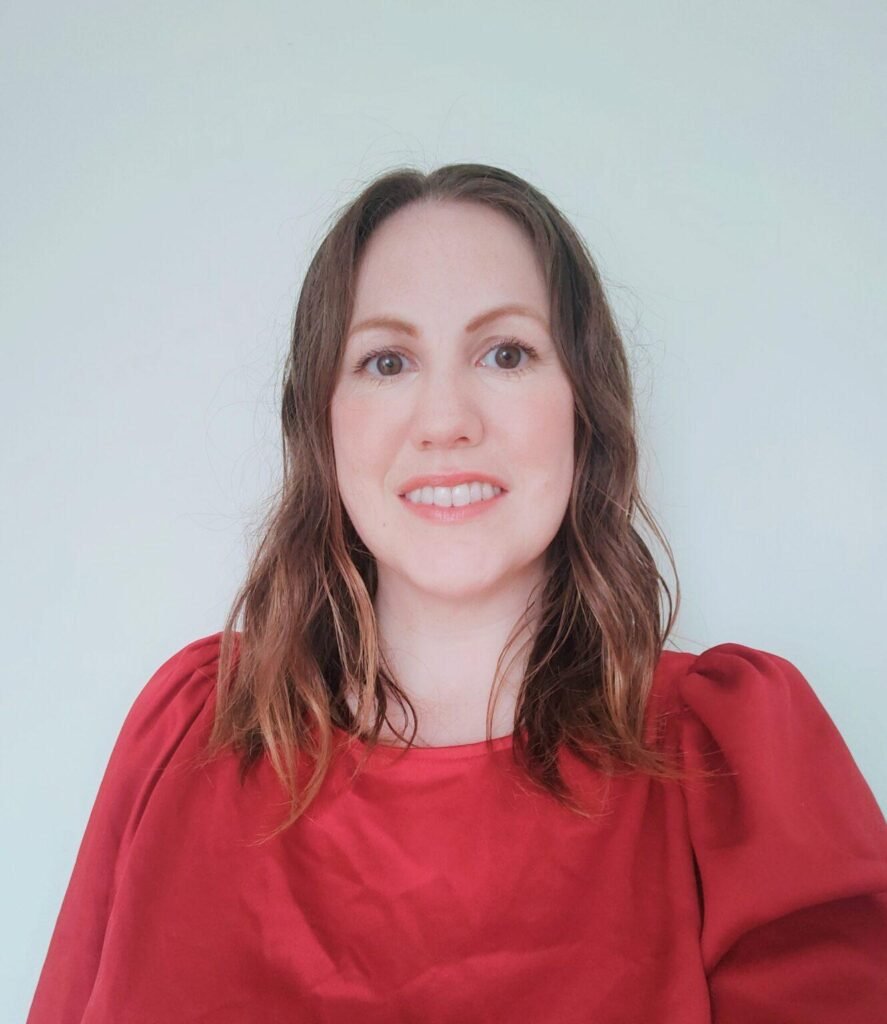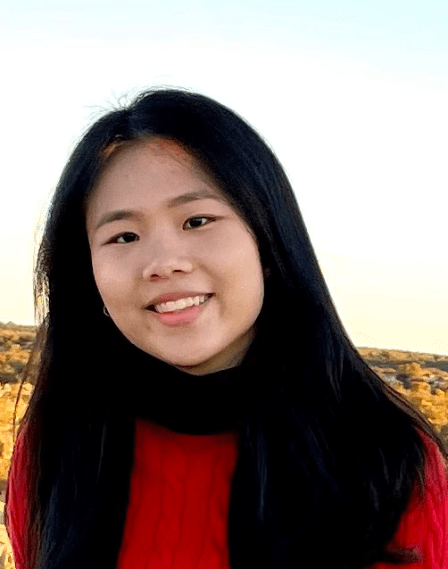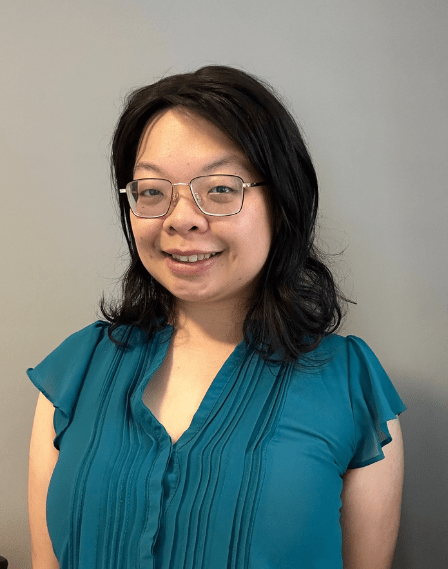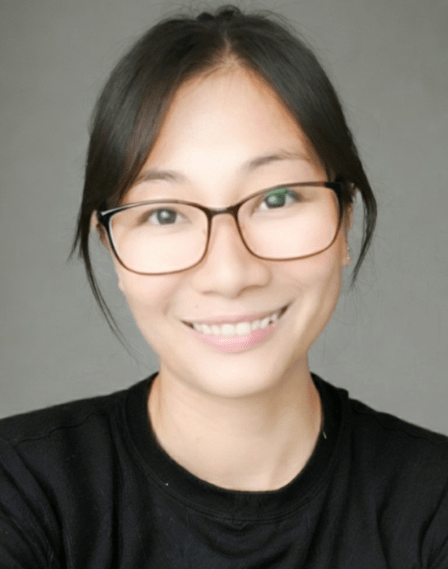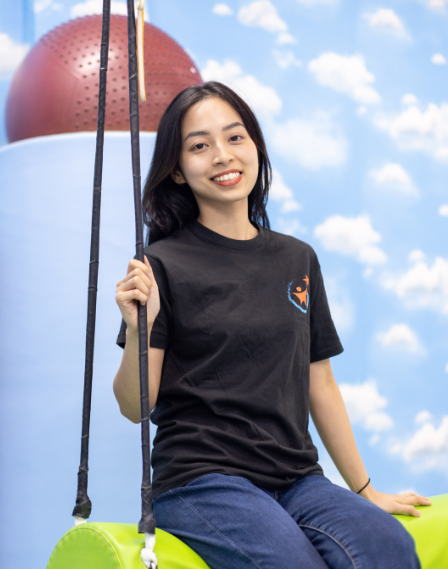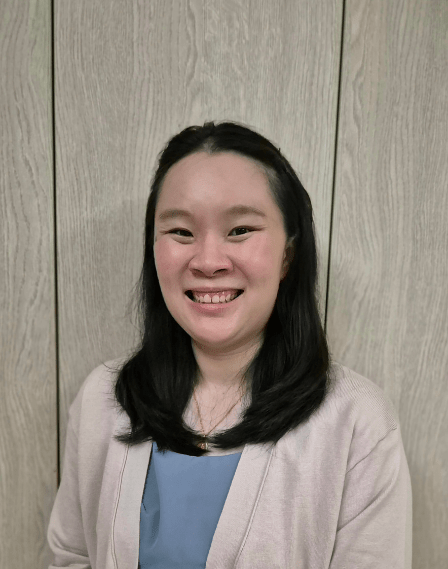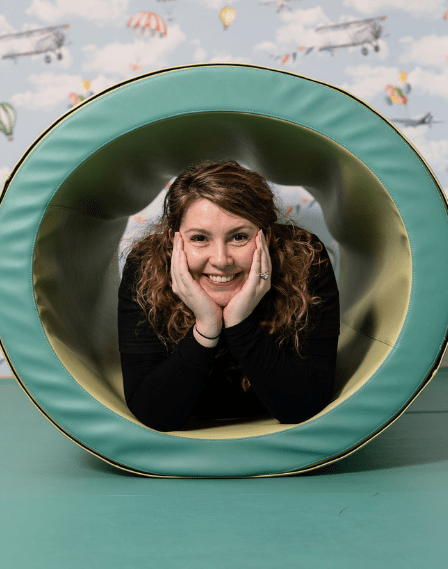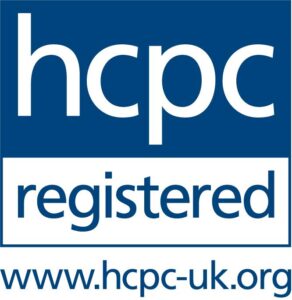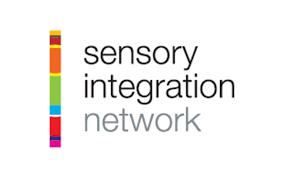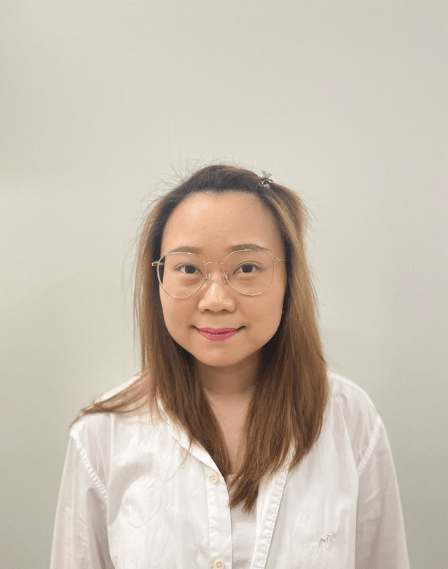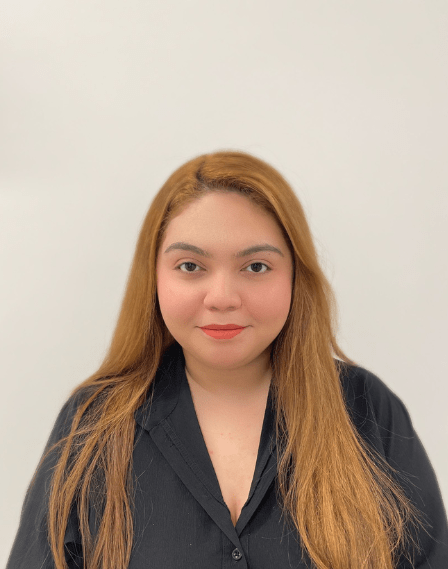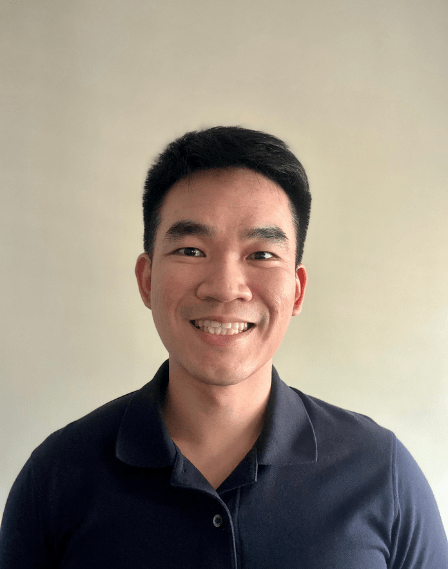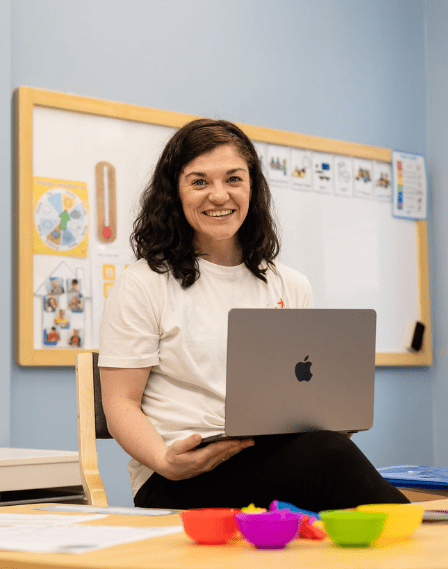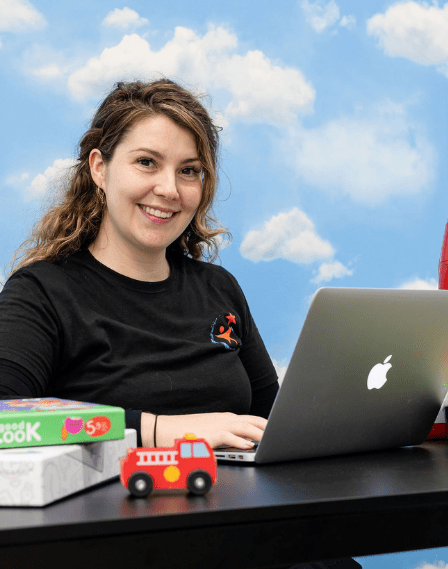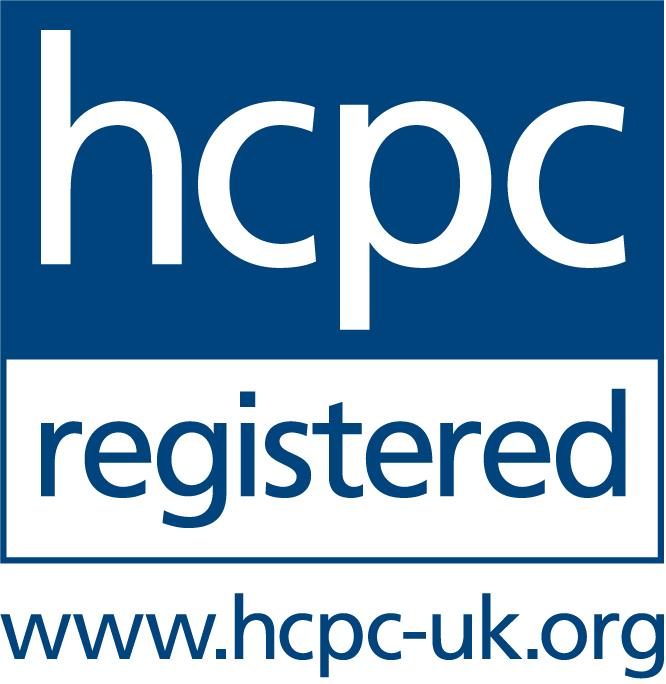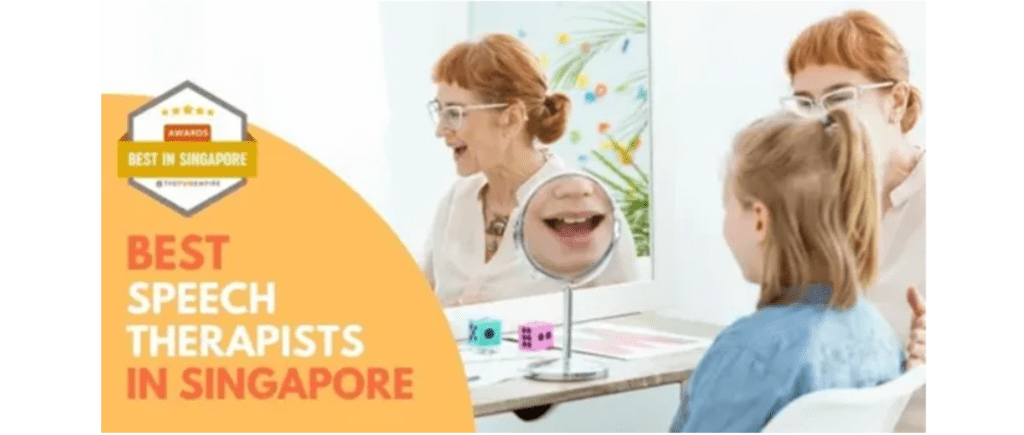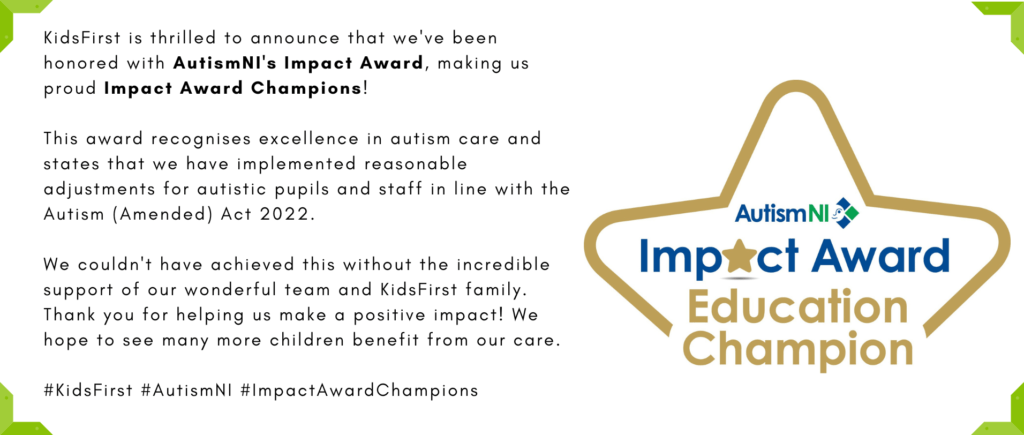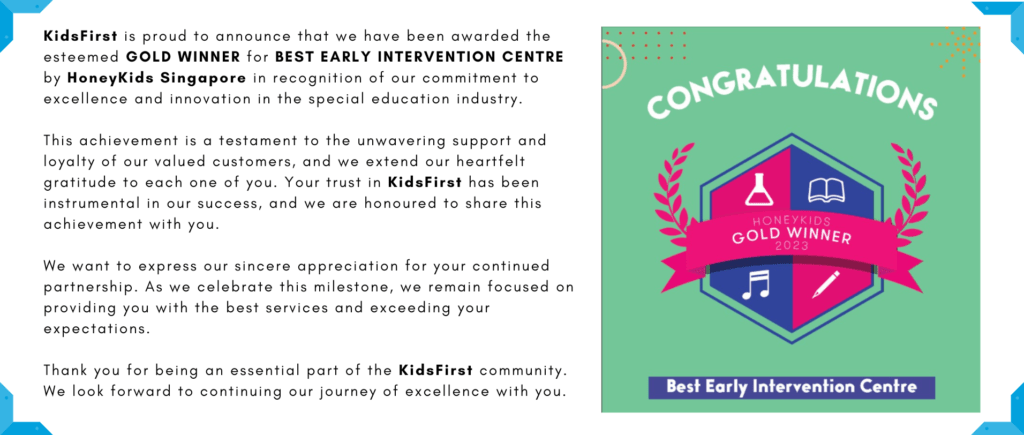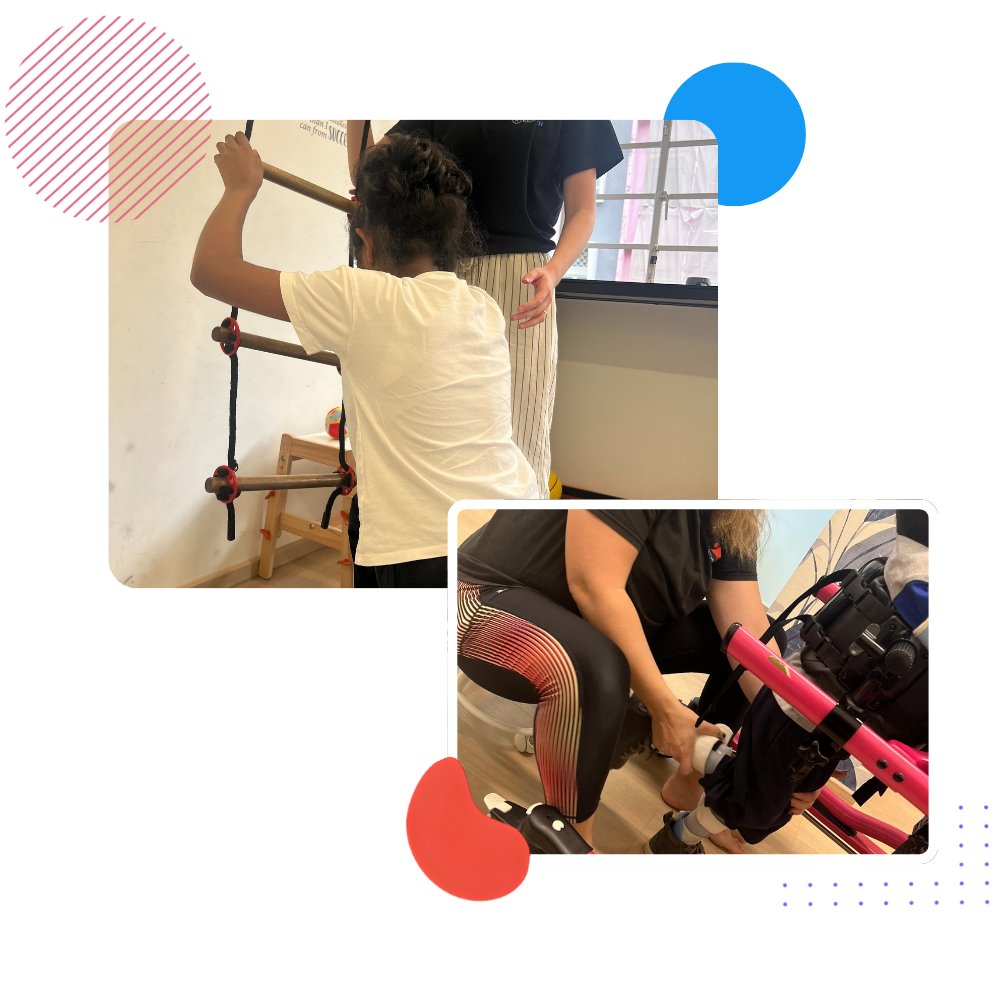
KidsFirst Clinic
Our clinic-based Occupational Therapy, Speech and Language Therapy and Physiotherapy services support children’s development in physical development, language, communication, feeding, social, and play development. KidsFirst Clinic offers 1 hour individual and group-based intervention.
Our clinicians are dedicated to keeping up with Evidence Based clinical approaches. We pride ourselves on working closely with schools, families, and support services to support each child’s development. We offer clinic based, home based or school-based sessions.
Our team works with a range of diagnoses including but not limited to:
- Autism Spectrum Disorder (ASD)
- Cerebral Palsy
- Genetic, chromosomal, and metabolic disorders/syndromes
- Birth injuries
- Sensory processing disorder
- Global Developmental Delay (GDD)
- Attention Deficit Hyperactive Disorder (ADHD)
- Traumatic brain or spinal cord injuries
Speech and Language Therapy
Speech and Language Therapy (SLT) provides life-changing treatment, support and care for children who have difficulties with communication, eating, and drinking.
Our SLT works with children with:
- Mild, moderate or severe learning difficulties
- Language delay
- Difficulties with speech sounds
- Hearing impairments
- Cleft lip and palate
- Stuttering
- Developmental Language Disorder (DLD)
- Feeding and eating difficulties
- Complex Communication needs - Augmentative Alternative Communication (AAC)
Our SLT team can complete formal and informal assessments which will provide information into your child’s understanding and expression of language, communication profile, speech or feeding difficulties.
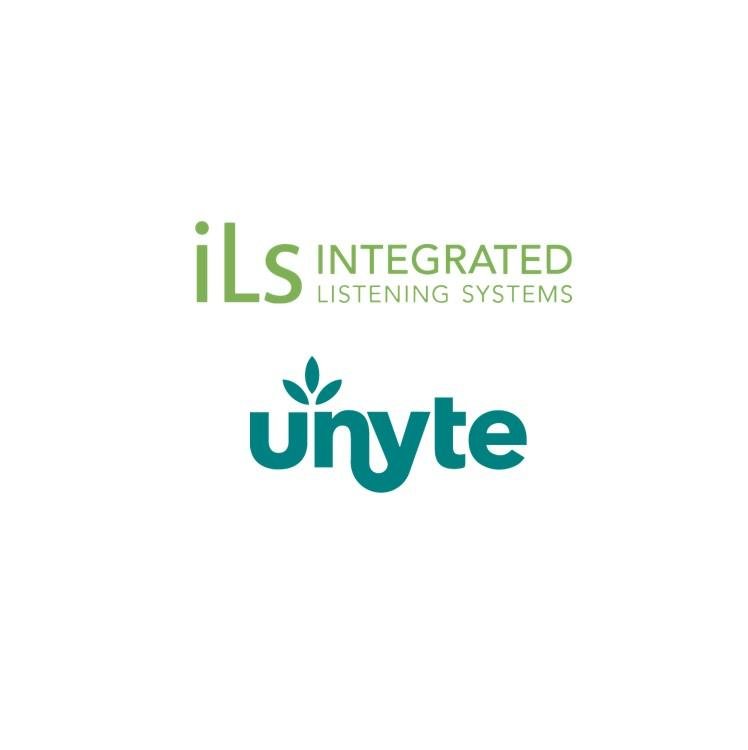

KidsFirst is a certified iLs provider
iLs solutions integrate with existing therapies to support patients in a range of therapeutic approaches including: occupational therapy, psychotherapy, trauma and addiction counseling, ASD, ADHD, speech language, physical therapy, education, and school counseling.
Safe and Sound Protocol (SSP)
An auditory intervention developed by Dr. Stephen Porges to restore the nervous system, reduce stress and auditory sensitivity and enhance social engagement and resilience.
The SSP has been successfully applied as a therapy to treat patients experiencing difficulties with emotional control, behavioural organization, and hearing and auditory sensitivities. The SSP is an adjunct therapy meant to be used in combination with and enhance existing treatment programs. Once patients are able to enter a regulated state of safety and calm by listening to the treated music served by the SSP, they become more receptive to other effective therapies.
Focus System
The iLs Focus System combines auditory, balance, and movement activities to create a foundation for learning, attention, processing and behavior.
This system is commonly used by mental health professionals to treat patients with Autism Spectrum Disorder, Sensory Processing Disorder, or those experiencing issues with learning and attention.
The key to the Focus System’s success lies in the concept of neuroplasticity – the idea that we can rewire the neural pathways in the brain through specific and repeated stimulation.
Occupational Therapy
Occupational Therapy (OT) empowers and facilitates children’s participation in activities of everyday living (i.e. occupations). Our OT team takes a developmental approach to address
- Physical ability (fine and gross motor skills)
- Sensory processing and modulation
- Handwriting skills
- Visual motor skills
- Self-help skills
- Body awareness
- Coordination of movement
- Self regulation
Our OT team can complete formal and informal assessments which will provide information on your child’s sensory processing, gross and fine motor skills.
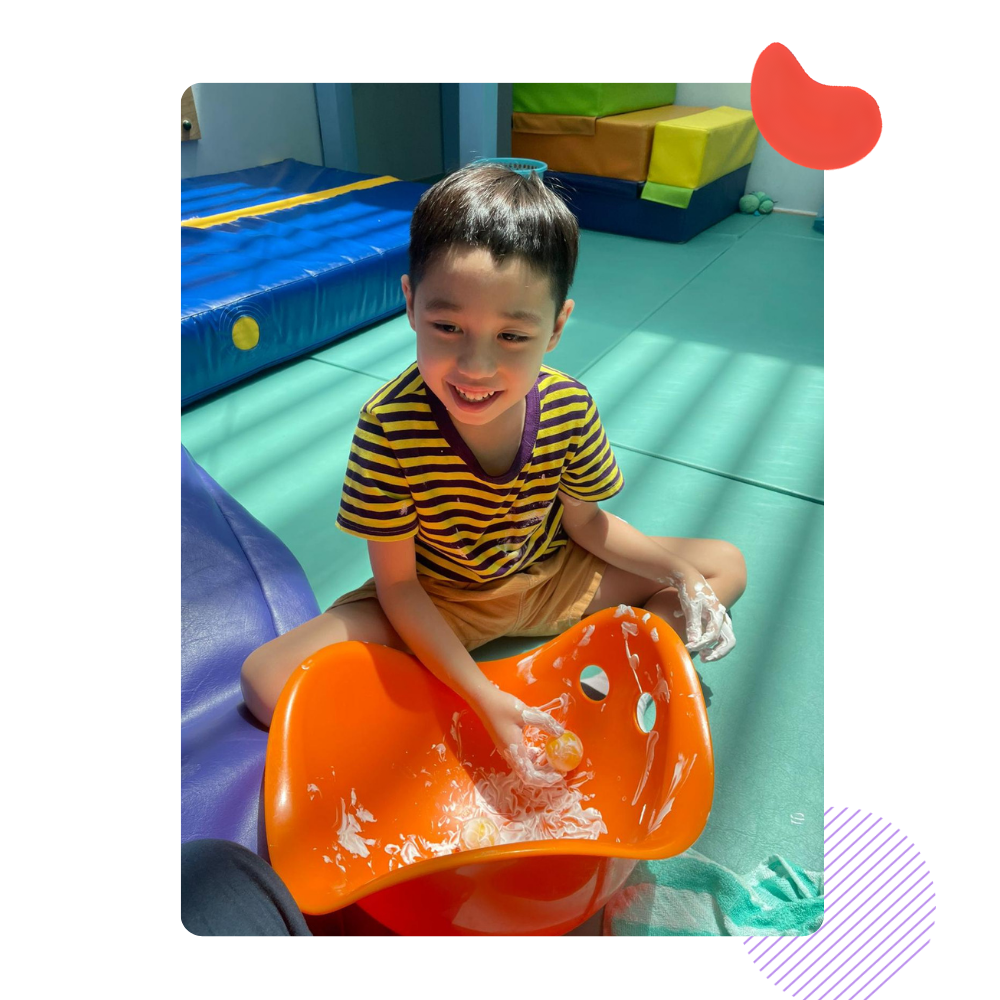

Speech Therapists in Action

Explore Our Sensory Gym

Discover the Benefits of Physiotherapy

Check out this inspiring video of one of our students conquering an obstacle course!

Unlock the Power of the Orton-Gillingham Approach at KidsFirst!


Dynamic Movement Intervention
What is DMI?
Dynamic Movement Intervention (DMI) is a comprehensive intervention that incorporates current research on neurorehabilitation, technologies, and methodologies. This therapeutic technique is used by physical (PT) and occupational therapists to treat children with gross motor impairments by improving and/or provoking a desired action with great emphasis on alignment, sensory integration, and function. The goal is to promote progress toward developmental milestones.
Why is DMI different than standard Occupational Therapy?
Our therapists had to undergo specific specialised training to conduct this intervention. Specialised equipment only utilised by DMI practitioners is used throughout sessions. All DMI sessions are conducted by DMI-trained physiotherapists and occupational therapists, qualified up to Level C Advanced.
For more information, click here to download a copy of our brochure. For further questions please do reach out to our team.
Physiotherapy (PT)
Physiotherapy is a vital component of our holistic approach to children’s well-being. Our experienced physiotherapists specialize in functional therapy, using hands-on techniques to help children achieve their maximum functional ability. We target various functional impairments, including abnormal muscle tone, strength, coordination, balance and posture, mobility, and achieving an optimal range of motion.
Our Physiotherapists work with a wide range of conditions, including:
- Global Developmental Delay (GDD)
- Down Syndrome
- Cerebral Palsy
- Neuromuscular disorders
- Genetic conditions
- Hypotonia
- Hypertonia
- Torticollis
- Flat feet
- General strength and conditioning
- Exercise endurance
Our comprehensive assessment process evaluates your child’s functional skills, gross motor skills, strength, balance, and coordination. This assessment allows us to identify areas that may require additional support and to tailor our therapeutic goals accordingly.
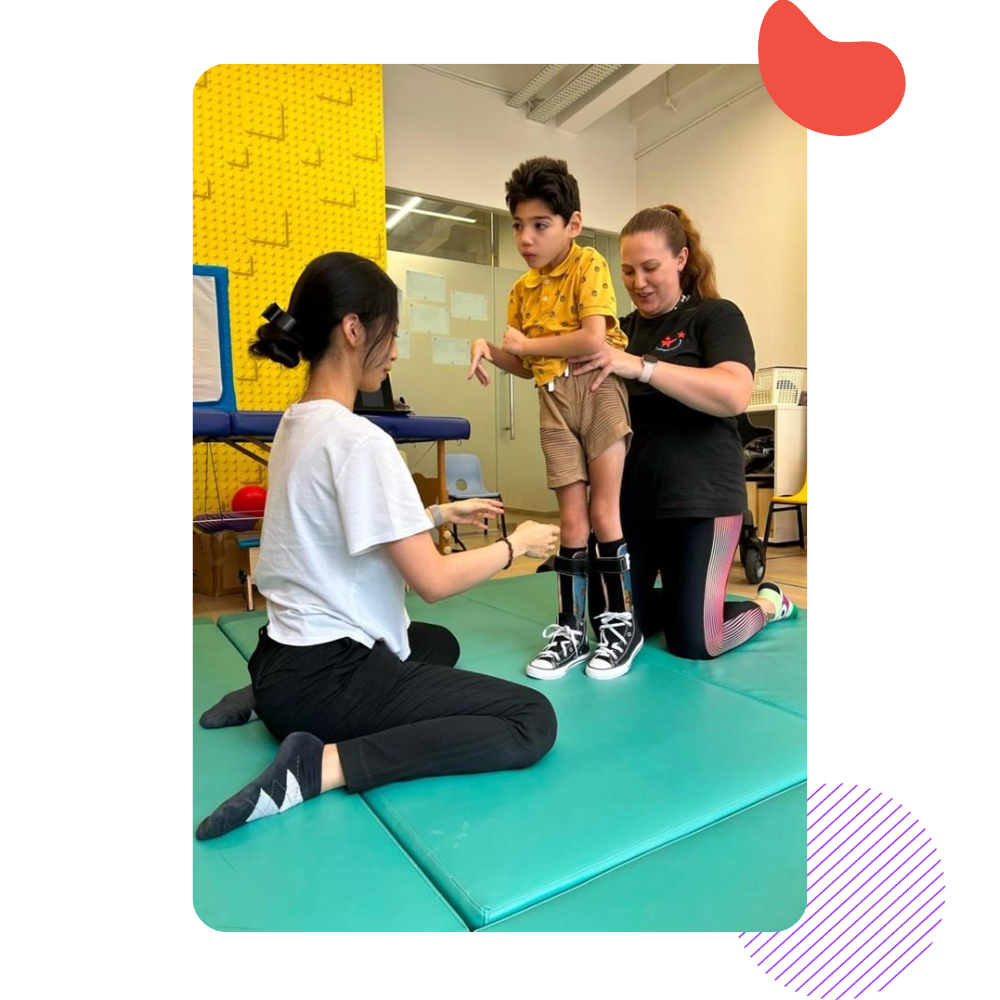

Flow chart
Making an appointment at KidsFirst Clinic
-
Reach out to KidsFirst admin team
-
A therapist will give you a call to discuss your concerns
- We will arrange an initial consultation/ assessment at a time of your convenience
- Your child attends the initial OT/ SLT/PT consultation (Parents are encouraged to join).
- Therapists follow up with your child’s school to discuss your child’s strengths and areas for growth.
All families are provided with written feedback following the assessment. Therapists will assemble individual therapy for your child based on the areas for growth identified in the consultation. Progress will be monitored and evaluated regularly with families.
Group Based Intervention
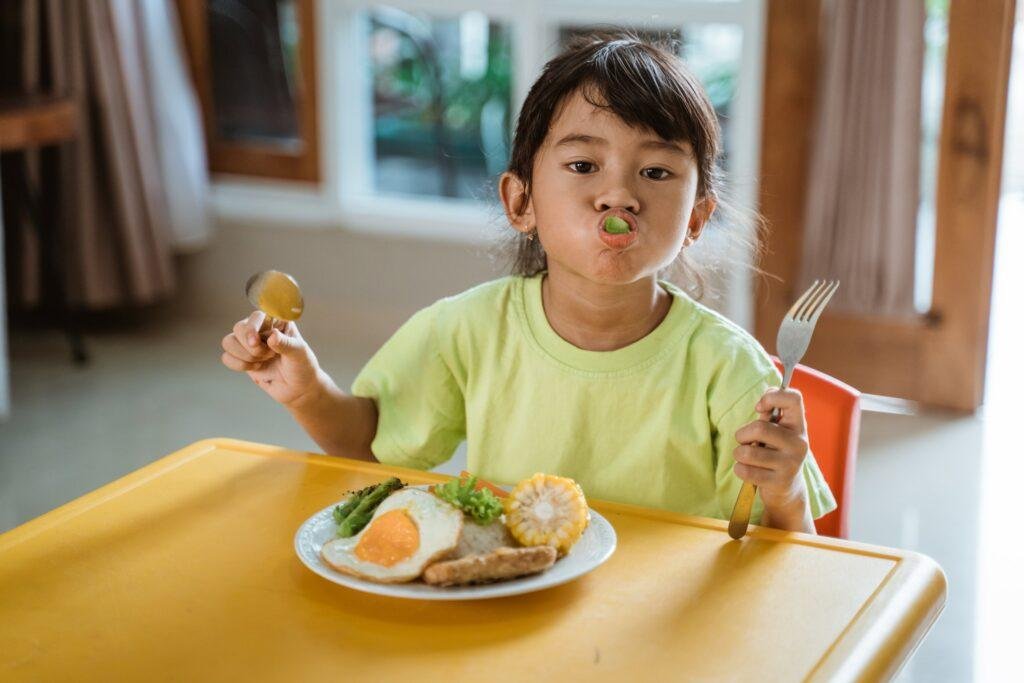
Feeding And Eating Difficulties
The Sequential Oral Sensory (SOS) approach is a play-based method that helps picky eaters develop a positive relationship with food. SOS Approach to Feeding is a Transdisciplinary Program for assessing and treating children with feeding and weight/growth difficulties. SOS Approach to feeding integrates motor, oral, learning, medical, sensory and nutritional factors and approaches in order to comprehensively evaluate and manage children with feeding/growth problems.
Based on the initial feeding assessment, a child may be assigned to Individual Feeding Therapy or Group Feeding Therapy.
A compulsory information session precedes the group-based program. The information session will address:
- The SOS approach
- Explore reasons why their child may be having difficulties with feeding and eating
- What can be done at home
Child goals:
- Participate in a play-based group alongside their peers
- Learn to have positive experiences with food
- Increase willingness to try different foods
Parent goals:
- Learn the cues to eating
- Understand the steps that are involved in eating
- Create a feeding routine at home
- Know your child’s limits
- Get support from other parents and staff
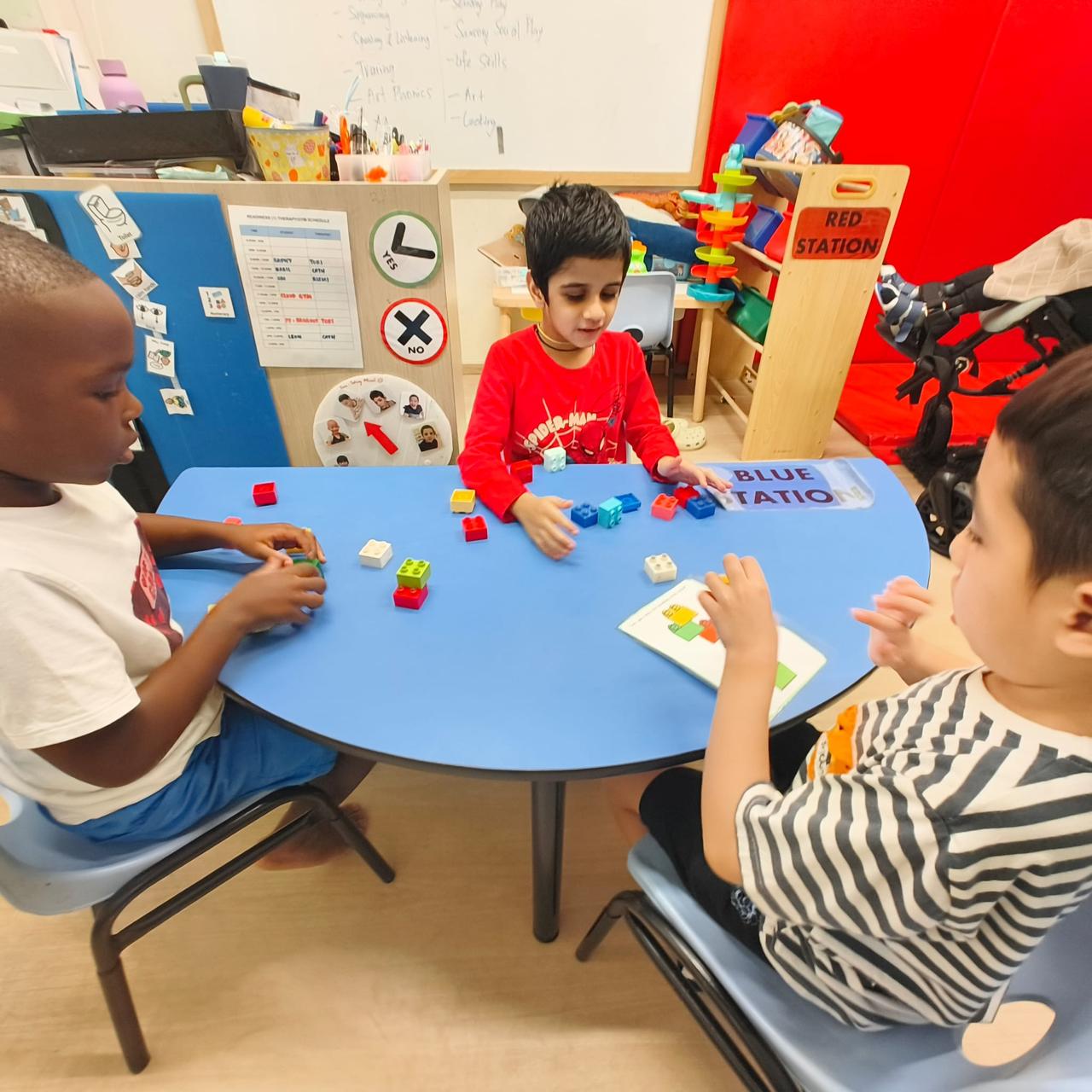
Lego® Social Groups
Lego based therapy is a social development programme originally developed to help develop communication skills. Research has found that Lego based therapy improves verbal and non-verbal communication, joint attention, sharing, turn-taking and most importantly collaborative problem-solving. At KidsFirst, we run Lego Social Groups to encourage carry-over to everyday life the skills we are targeting in sessions. This Lego based therapy group will target the development and carry over of higher-level language skills (e.g. inferencing).
The aim of Lego based therapy is to work together as a team to complete a Lego project. Each team can have up to 4 roles:
- Engineer - The engineer is in charge of sourcing the building materials.
- Architect - Has the plans and instructs the engineer and builder what to do.
- Builder - Follows the directions of the architect and puts the building materials together.
- Problem solver - Solves any problems that may come up during building.
Each role will alternate regularly to allow for each child to have an opportunity to take part.
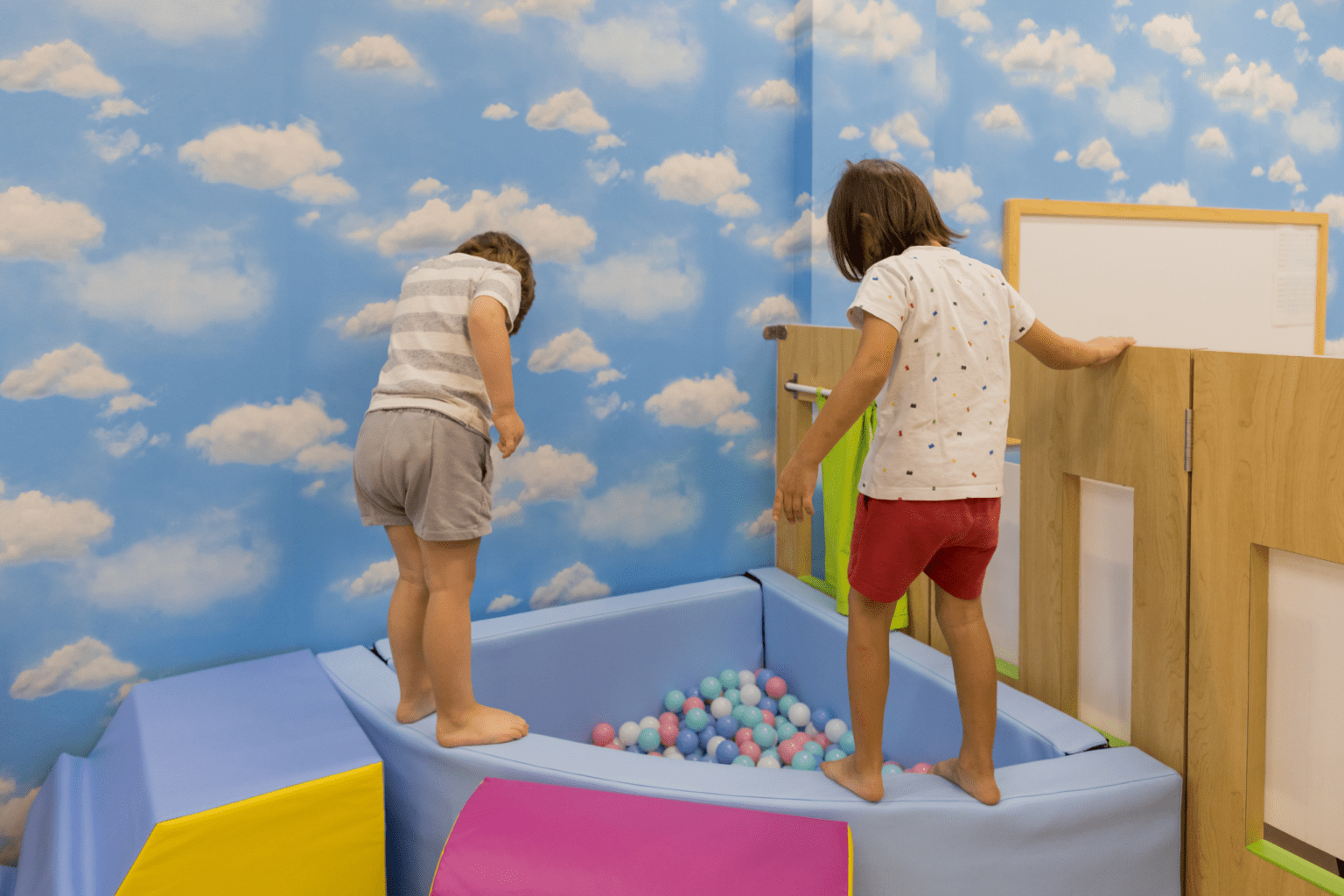
Social Groups
At KidsFirst, we run social pairs/small groups for children of different ages and developmental stages, which incorporate strategies and concepts from Michelle Garcia Winner’s Social Thinking Curriculum. Sessions are run by a Speech & Language Therapist, Occupational Therapist or Special Education Teacher. Depending on the needs of the children, intervention goals range from increasing peer awareness and interacting with peers in play to working cooperatively as a group, and problem solving when social conflicts occur. Activities during sessions are a combination of structured and unstructured activities, always keeping fun and relationship building at the core.
During the social pair/group sessions, we aim to guide individuals on a journey of discovery where they can:
- Learn formulas for gathering clues by observing a setting, the situation, and the people involved.
- Be empowered to figure out how the social world works through their own detective lens.
- Learn to identify feelings and emotions and connect them to behaviours.
- Understand that all feelings are okay, even uncomfortable ones, and we can still learn and grow.
- Have numerous opportunities to make smart guesses about hidden social rules in various situations.
- See examples and learn tips for school, home, and community life.
- Celebrate how all of us are social observers who are affected by others’ actions and reactions.

Zones of Regulation
The Zones of Regulation curriculum is for children (ages 8 – 18) that struggle with self-regulation including regulating sensory needs, executive functioning and emotions including anger management, and impulse control so that the child can exhibit socially appropriate behaviour with others. The program is a 10 week group for 60 minutes per session. Children will be grouped by age and developmental levels. Parents will receive information following every group so that the concepts can continue to be incorporated at home.

YES Group
The YES Group is a social and special interest group for 12 – 18 year olds. The group is based on a strengths-based approach to concentrate on the inherent strengths an individual has with the goal of focusing on the position while working together with others to build on their strengths as a group.
The group is centered around the interests of the individual and the individuals in the group, while creating an environment where they can come and have fun, develop new friendships and learn new skills, in a fun, facilitated and engaging way! It enables all group members to begin to apply social skills in a structured and facilitated environment while using their strengths to overcome areas that are more challenging for them.
We aim to help participants to build confidence, self-esteem and to identify strengths. The participants are encouraged to make decisions on what they would like to develop throughout, both individually and as a group.
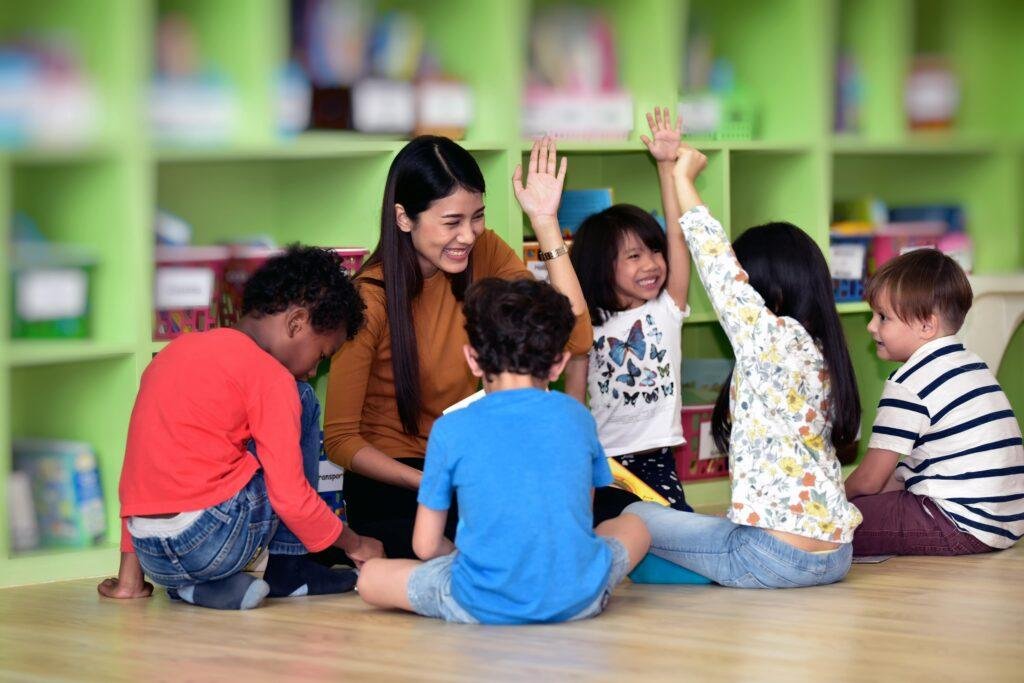
Executive Functioning Social Groups
We run executive functioning groups following the CAAT treatment program. This research- based curriculum is tailored to provide developmentally appropriate programs that teach children how to gain flexibility, understand and effectively set goals, plan for individual achievement and practice collaborative problem-solving.
This group includes 8 interactive sessions. For younger students (Grade 3-5) this group will target self- advocacy, compromise, friendships and social cues, emotional self- identification and executive functioning. For students within middle school (Grade 6-8) this group will target motivation, goal- setting, follow through, and flexible problem solving.

Handwriting Club (OT Lead)
KidsFirst Handwriting Club is a group that consists of 8 classes. It is for children between the ages of 5- 15 years who will be split into age- appropriate groups.
The goal of the group is to lay the foundation of efficient handwriting by working on gross motor, fine motor and visual motor skills that support this complex skill. This group also works on correct pencil grip, correct formation of letters, letter reversals and writing legibility. The group targets mainly print, but cursive will be taught if appropriate.
Parents are provided with weekly newsletters that explain the skills worked on and activities to practice at home.
Sensational Storytellers Group (SLT Lead)-
This fun Speech and Language Therapy based group helps develop children’s narrative skills. Narratives or storytelling allows students to orally discuss their thoughts and experiences while developing an understanding of higher- level language and theory of mind.
This group focuses on identifying the elements that make a good story (character, settings, problems, and solutions) We incorporate visuals to help children organize their stories and brainstorm ideas to make the story fun.
This group is ideal for students 8-11 years.

Sensational Storytellers Group (SLT Lead)
This fun Speech and Language Therapy based group helps develop children’s narrative skills. Narratives or storytelling allows students to orally discuss their thoughts and experiences while developing an understanding of higher-level language and theory of mind.
This group focuses on identifying the elements that make a good story (character, settings, problems, and solutions). We incorporate visuals to help children organize their stories and brainstorm ideas to make the story fun.
This group is ideal for students 8-11 years.
LET’S GET IN TOUCH
We are happy to arrange a phone call to answer your questions, We can also arrange a complimentary center visit to discuss KidsFirst early intervention and therapy services with one of our Team members.





